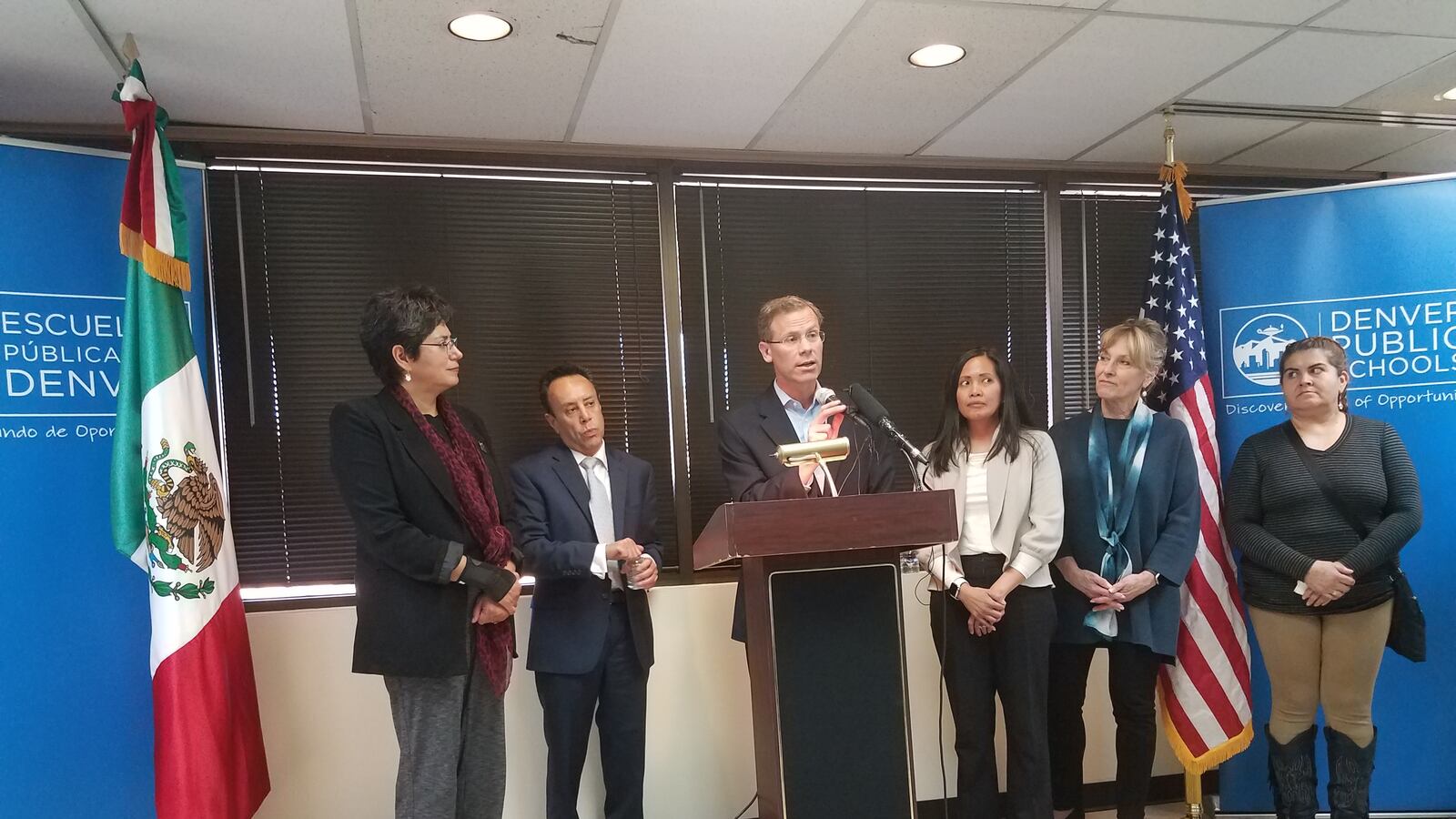Flanked by American and Mexican flags, leaders of the state’s largest school district and Mexico’s acting consul general in Denver stood side by side Tuesday pledging to help protect student rights amid stricter immigration enforcement.
At a news conference at the city’s Mexican consulate, the two parties promised to build on their longstanding partnership to offer additional resources to Denver Public Schools families.
The joint appearance came within hours of the Department of Homeland Security releasing new directives laying out a much more aggressive federal approach to enforcing immigration law.
“The most important thing here is the parents and people who have kids in schools, that they know they are safe,” said Jeremias Guzman, Mexico’s deputy consul general in Denver, who is serving as acting consul general.
DPS leadership has been vocal on immigration issues since the election of President Donald Trump, whose hard-line immigration stance was core to his campaign.
The school board approved a resolution Thursday saying DPS will do everything “in its lawful power” in response to immigration enforcement to protect students’ confidential information and not disrupt learning.
That includes continuing its policy of not collecting any information on students’ immigration status and involving DPS’s general counsel in any enforcement requests.
To date, DPS officials say they have not needed to respond to any requests.
DPS has not contacted federal Immigration and Customs Enforcement officials to discuss the district’s approach, according to a statement Tuesday from the district’s deputy general counsel.
Tuesday’s event at the consulate was an opportunity for DPS officials to better communicate to a community on edge about immigration enforcement under Trump.
As board member Lisa Flores noted, the Mexican consulate has a strong relationship with the community’s Spanish-language media. There are 35,550 Spanish-speaking students in DPS, of a total student population of about 92,000.
Superintendent Tom Boasberg delivered remarks in Spanish that he sharpened on a six-month sabbatical to South America last year.
Boasberg said DPS is strengthening its approaches in partnership with the consulate, including sharing information on the district’s daily Spanish language radio program and adding additional community spaces at schools for sharing information beyond new spaces opened last week.
The district is posting its immigration resolution in every school, translating it into 10 languages and training its crisis and emergency response teams to help students dealing with immigration enforcement issues.
“We want to reassure students and families that DPS is committed to providing a safe and welcoming space that will support their education,” Flores said. “The safety and emotional well-being of our students will be supported regardless of immigration status.”
Boasberg was cautious in comments about the federal immigration directives issued Tuesday, emphasizing the district needs to review the details.
The policy calls for the deportation of undocumented immigrants convicted of any criminal offense, a break from the Obama administration’s prioritization of those convicted of serious crimes.
Federal officials said there would be no change to the Deferred Action for Childhood Arrivals program, or DACA, which provides work permits and deportation protection to young people brought to his country without documentation.
Protecting the program has been a priority of DPS, which has students and teachers who benefit from the program. Boasberg said Tuesday that DACA has been “fundamental to our students, giving them hope for the future.”
He said DPS will continue to advocate for the program and push for it to become enshrined as law.

